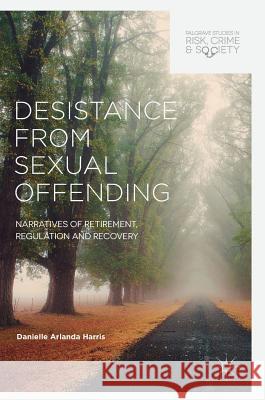Desistance from Sexual Offending: Narratives of Retirement, Regulation and Recovery » książka
topmenu
Desistance from Sexual Offending: Narratives of Retirement, Regulation and Recovery
ISBN-13: 9783319631998 / Angielski / Twarda / 2018 / 287 str.
This book describes the complex process of desistance from sexual crime as told by 74 men incarcerated for sexual offenses and released back into the community.











